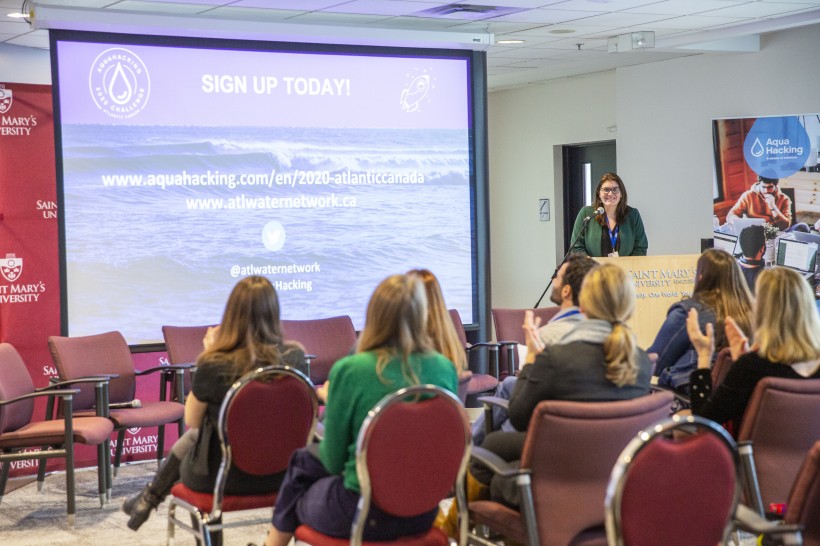The AquaHacking Challenge, a national competition that encourages post-secondary students to find solutions to problems plaguing freshwater supplies, has launched in Atlantic Canada.
The East Coast program was launched Wednesday at an event at Saint Mary’s University in Halifax. The regional program is part of a national competition that awards a total of $50,000 to teams that come up with the best solutions to pressing water issues.
“We are extremely proud to establish AquaHacking in Atlantic Canada,” said AquaHacking Interim CEO Dominique Monchamp in a statement. “We hope that our partnership with Saint Mary's University Atlantic Water Network will open the doors to new technological solutions."
The competition invites students between the ages of 18 and 35 to register online and join a team. They will be mentored by developers, designers, scientists, engineers, technology enthusiasts and entrepreneurs to produce a project that can solve one of five issues:
• Algal blooms;
• Agricultural runoff;
• Drinking water treatment;
• Well water testing;
• And, microplastics.
Throughout the challenge, teams will have access to a variety of workshops and resources, as well as mentors to help them develop their solutions and refine their pitches. The top teams will be determined at the AquaHacking semi-final in May, after which successful teams will continue working on their solutions to present for a Dragons' Den-style final in September.
The de Gaspe Beaubien Foundation founded the challenge in 2015 to help address environmental problems related to freshwater. After five years in the Great Lakes and St. Lawrence Basin, AquaHacking went national for 2020 with regional competitions across Canada.
“Our work with community-based monitoring organizations throughout the region has helped identify some of the water issues for this year's challenge,” said Emma Wattie, director of Saint Mary’s University Atlantic Water Network. “AquaHacking is a clear next step to help find solutions to some of the most pressing water issues facing Atlantic Canadians.”










